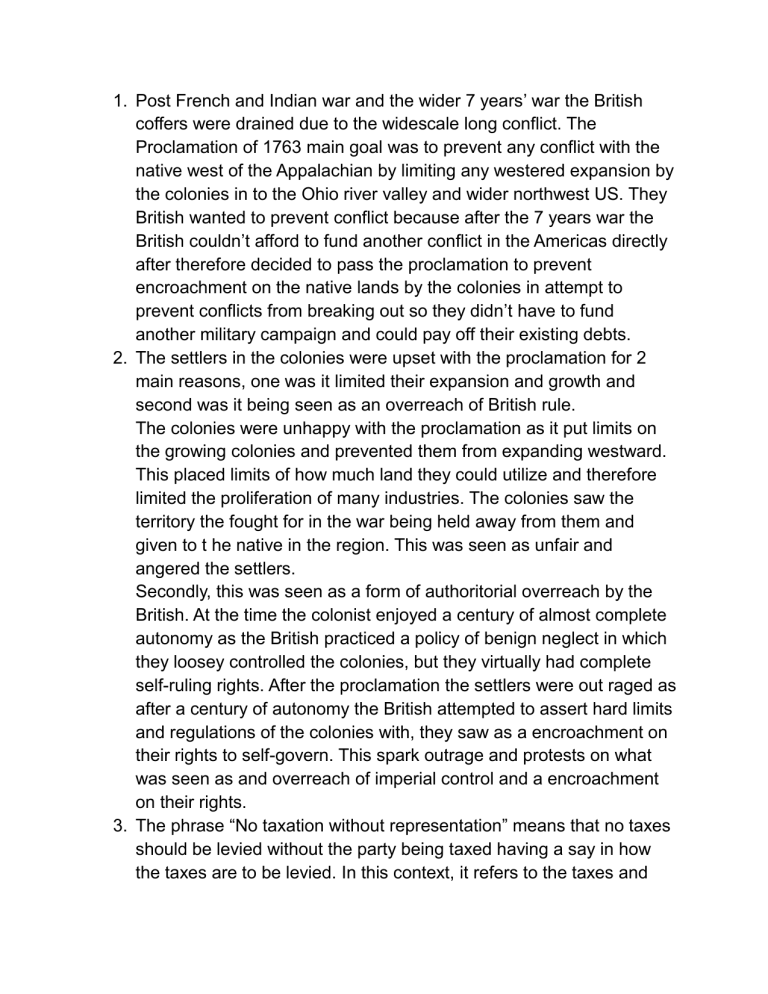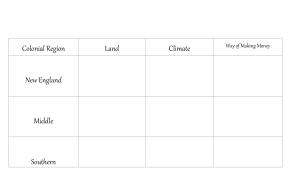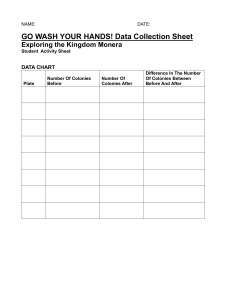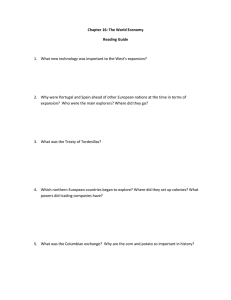
1. Post French and Indian war and the wider 7 years’ war the British coffers were drained due to the widescale long conflict. The Proclamation of 1763 main goal was to prevent any conflict with the native west of the Appalachian by limiting any westered expansion by the colonies in to the Ohio river valley and wider northwest US. They British wanted to prevent conflict because after the 7 years war the British couldn’t afford to fund another conflict in the Americas directly after therefore decided to pass the proclamation to prevent encroachment on the native lands by the colonies in attempt to prevent conflicts from breaking out so they didn’t have to fund another military campaign and could pay off their existing debts. 2. The settlers in the colonies were upset with the proclamation for 2 main reasons, one was it limited their expansion and growth and second was it being seen as an overreach of British rule. The colonies were unhappy with the proclamation as it put limits on the growing colonies and prevented them from expanding westward. This placed limits of how much land they could utilize and therefore limited the proliferation of many industries. The colonies saw the territory the fought for in the war being held away from them and given to t he native in the region. This was seen as unfair and angered the settlers. Secondly, this was seen as a form of authoritorial overreach by the British. At the time the colonist enjoyed a century of almost complete autonomy as the British practiced a policy of benign neglect in which they loosey controlled the colonies, but they virtually had complete self-ruling rights. After the proclamation the settlers were out raged as after a century of autonomy the British attempted to assert hard limits and regulations of the colonies with, they saw as a encroachment on their rights to self-govern. This spark outrage and protests on what was seen as and overreach of imperial control and a encroachment on their rights. 3. The phrase “No taxation without representation” means that no taxes should be levied without the party being taxed having a say in how the taxes are to be levied. In this context, it refers to the taxes and tariffs the Crown passed for the colonies in America after the French and Indian war. The taxes were levied to relive some of the economic pressures faced by the British after the long conflict and help fund the government to pay of their debts. The colonist saw this as colonial overreach and they Crown having not right to tax them as they had complete autonomy for 100 years. The Phrase “No taxation without representation” was commonly used amongst the colonist as a motto or phrase of protest as the colonist had no seat, representation or vote in the British parliament which levied the taxes. The phrase argues that its unfair that the British levied taxes on the colonies without them having a say in the decision and demands that either the British repel the taxes or give the colonies representation in parliament and a vote on how taxes are enacted on the colonies. No taxation of the colonies without representation in parliament on how they are taxed as it would be unfair and an injustice.




